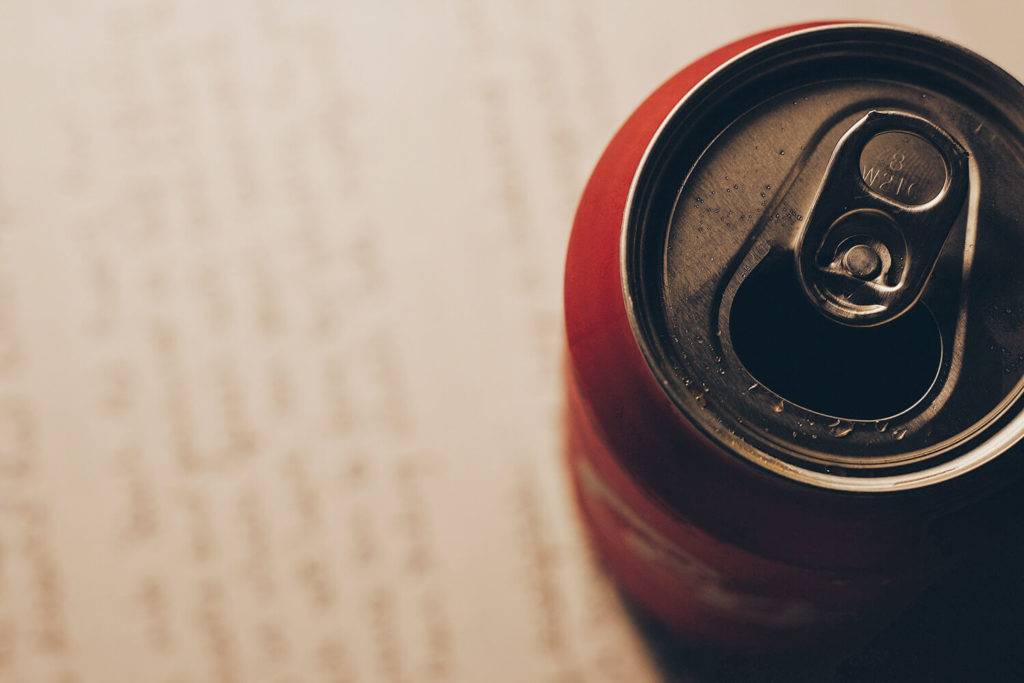DOES DIET SODA HELP YOU LOSE WEIGHT?

When trying to lose weight you may turn to alternatives that are similar, such as low fat and diet versions of your favourite foods and drinks. Are these actually healthier, or are there risks that come with these artificial flavourings?
Is Diet Soda Bad for You?
Unfortunately there’s lots of research linking diet soda drinking to all sorts of health troubles.
- Depression
Drinking more than four cans a day of soda is linked to a 30% higher risk of depression. On the flip side, drinking four cups of coffee a day seemed to offer protective effects, lowering depression risk 10%.
- Kidney Damage
Harvard researchers found long-term diet soda drinking causes a 30% greater reduction in kidney function. The study looked at people who regularly consumed diet soda over 20 years.
- Type-2 Diabetes & Metabolic Syndrome
The artificial sweeteners may tamper with the gut-brain connection. This can lead to brain trickery that leads to “metabolic derangements.” Weizmann Institute of Science in Israel researchers found diet soda alters gut microbes in a way that increases the risk of metabolic diseases. A 2009 study published in the journal Diabetes Care found drinking diet soda daily is linked to a 36% higher risk of metabolic syndrome and a 67% increased risk of type-2 diabetes compared to non-diet soda drinkers.
When researchers fed mice zero-calorie sweeteners found in these drinks, including saccharin, aspartame, and sucralose, they developed glucose intolerance.
- Cardiovascular Disease
The university of Miami and Columbia University researchers followed more than 2,000 adults for 10 years and found that those drinking diet soda daily were more likely to suffer a stroke or heart attack. They were also more likely to die from cardiovascular disease. This increased risk remained even when researchers adjusted for smoking, exercise, weight, sodium intake, high cholesterol, and other factors that could have contributed to the difference.
- Compromised Lungs
Drinking soda, including diet soda, increases your risk of developing asthma and COPD symptoms. The more soda you drink, the higher the risk, known as a “dose-response relationship.” An Australian study found that 13.3% of surveyed participants with asthma and 15.6% of those with COPD drank more than two cups of soda each day.
- A Less Protected Brain
Aspartame, a common artificial sweetener in diet sodas, chips away at your brain’s antioxidant defence system. The results of an animal study found long-term consumption of aspartame leads to an imbalance in the antioxidant/pro-oxidant status in the brain, mainly through the mechanism involving the glutathione-dependent system.
- Increase in weight!
Artificial sweeteners confuse your body’s natural ability to manage calories based on tasting something sweet. You tend to then overeat even if you drink diet soda. And get this: if you consume artificial sweeteners you are twice as likely to develop metabolic syndrome!

So, will diet soda help you lose weight?
Long story short, no. Diet foods mimic the tastes of some of your favourite foods, however the stress they put on the body counteracts their positive psychological effects and can lead to you putting on more weight or developing an unhealthy relationship with eating/drinking. A diet made up of fresh foods will keep you feeling more full and satisfied, while providing your body with the nutrients and energy it needs. Supplementing this with exercise will give the best results.
Public health officials should tell people to avoid diet soda much like they do with regular, sugar-sweetened drinks. Susan E. Swithers, Ph.D., a professor of psychological sciences and a behavioural neuroscientist at Purdue says warnings may need to be expanded to include limiting intake of all sweeteners, including no-calorie sweeteners.
